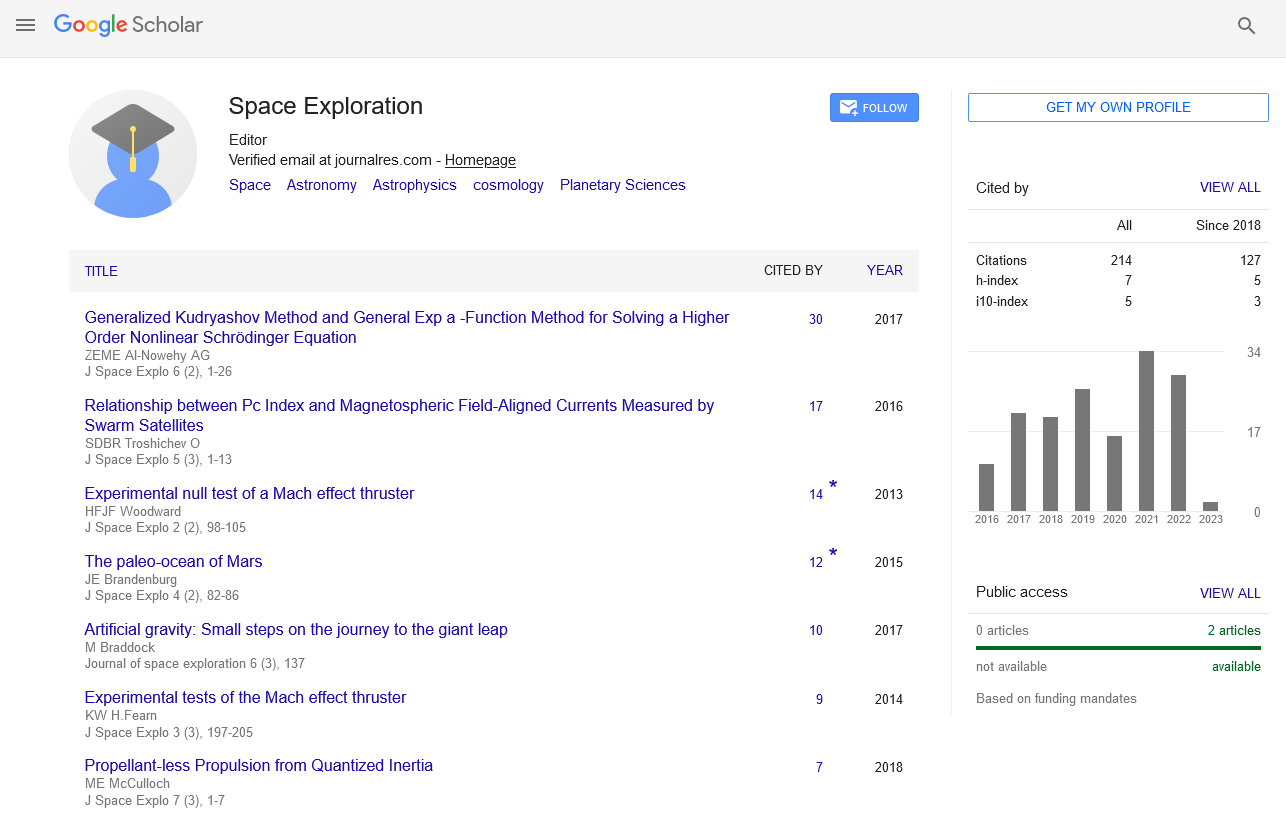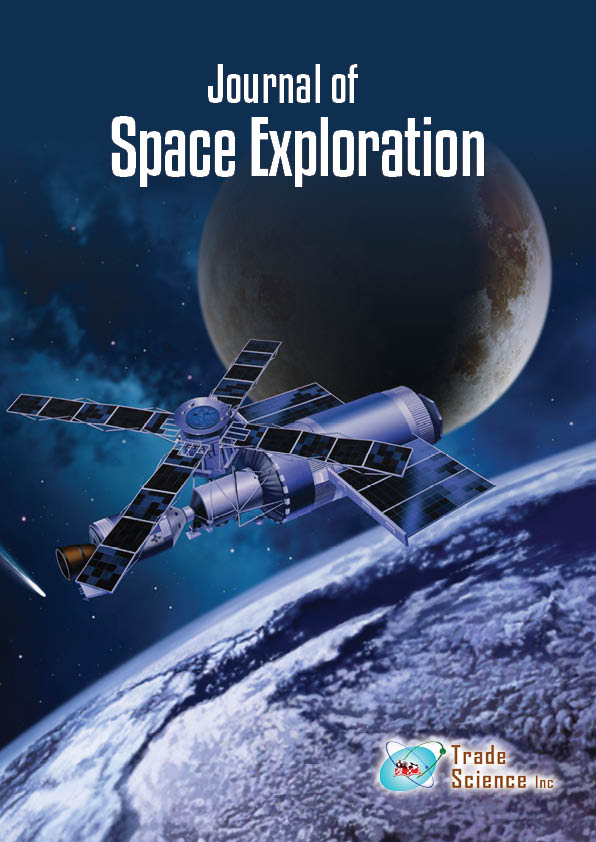Opinion Review
, Volume: 13( 6)The Accelerating Universe: Dark Energy's Influence on Cosmic Expansion
- *Correspondence:
- Luisa Peter
Department of Physics and Astronomy, Denmark
E-mail: peterlui@gmail.com
Received date: Aug-04-2024, Manuscript No. tsse-24-130121; Editor assigned: Aug-06-2024, Pre-QC No. tsse-24-130121 (PQ); Reviewed: Aug-09-2024, QC No tsse-24-130121; Revised: Aug-13-2024, Manuscript No. tsse-24-130121(R); Published: Aug-30-2024, DOI.10.37532/2320-6756.2024.13(6).366
Citation: Peter L. The Accelerating Universe: Dark Energy's Influence on Cosmic Expansion. J Space Explor.2024; 13(6).
Abstract
The universe, in its grandeur, is not only expanding but also accelerating in its expansion. This astonishing phenomenon, observed in the late 20th century, defied conventional understanding and led scientists to postulate the existence of a mysterious force known as dark energy. This article aims to explore the intricate relationship between dark energy and the accelerating expansion of the universe. Beginning with an overview of cosmic expansion and the historical context of its discovery, we delve into the theoretical foundations of dark energy, including the cosmological constant and alternative hypotheses. We then examine observational evidence supporting the existence of dark energy, such as supernova surveys and cosmic microwave background observations. Furthermore, we discuss the profound implications of an accelerating universe for our understanding of cosmology and the fate of the cosmos. Finally, we explore current research efforts aimed at unraveling the mysteries of dark energy and its role in shaping the evolution of the universe.Introduction
The universe, vast and incomprehensible, has intrigued humanity for millennia. Yet, it was only in the last century that we began to uncover its most bewildering secrets. Among these mysteries is the accelerating expansion of the cosmos, a phenomenon that challenges the very fabric of our understanding. At the heart of this enigma lies dark energy, a perplexing force that drives galaxies apart at an ever-increasing pace. In this article, we embark on a journey to unravel the mysteries of the accelerating universe, exploring the role of dark energy in shaping the cosmic landscape.
The expansion of the universe
The concept of an expanding universe traces its origins back to the early 20th century when astronomers observed that galaxies are moving away from each other. This revelation, pioneered by Edwin Hubble, laid the foundation for the Big Bang theory, which posits that the universe began as a singular point and has been expanding ever since. Initially, it was believed that the expansion might gradually slow down due to the gravitational pull of matter.
Discovering dark energy
In the latter half of the 20th century, astronomers made a startling discovery: not only is the universe expanding, but its expansion is accelerating. This unexpected revelation, based on observations of distant supernovae, challenged existing cosmological models and sparked intense scientific scrutiny. To explain this accelerated expansion, scientists proposed the existence of dark energy, a mysterious force that permeates the cosmos and counteracts the gravitational pull of matter.
Theoretical foundations
Dark energy finds its theoretical roots in Einstein's theory of general relativity, which describes how matter and energy warp the fabric of space time. One of the most prominent explanations for dark energy is the cosmological constant, a term introduced by Einstein himself to maintain a static universe. However, the observed acceleration of cosmic expansion suggests that the cosmological constant may not be constant after all. Alternative theories, such as quintessence and modifications to gravity, offer alternative explanations for the nature of dark energy.
Observational evidence
Despite its elusive nature, dark energy leaves subtle imprints on the cosmos that can be observed and analyzed by astronomers. Key pieces of evidence supporting the existence of dark energy include observations of distant supernovae, which reveal that their brightness is fainter than expected in an expanding universe. Additionally, measurements of the cosmic microwave background radiation, the remnant glow of the Big Bang, provide further support for the existence of dark energy.
Implications for cosmology
The discovery of dark energy has profound implications for our understanding of the cosmos. If the universe is indeed dominated by dark energy, it may continue to expand indefinitely, leading to a future where galaxies drift beyond the horizon of observation. Furthermore, dark energy challenges fundamental principles of physics and cosmology, prompting researchers to reconsider long-held beliefs about the nature of space, time, and gravity.
Current research and future prospects
Despite decades of research, dark energy remains one of the most tantalizing mysteries in modern science. Efforts to probe its nature and properties continue unabated, fueled by advances in observational techniques and theoretical modeling. Future experiments, such as the Large Synoptic Survey Telescope and the European Space Agency's Euclid mission, hold promise for shedding new light on dark energy and unraveling its secrets.
Conclusion
The accelerating universe, driven by the enigmatic force of dark energy, stands as a testament to the complexity and wonder of the cosmos. From its humble beginnings as a theoretical curiosity to its profound implications for the fate of the universe, dark energy continues to captivate the minds of scientists and laypersons alike. As we continue to unravel the mysteries of dark energy and its influence on cosmic expansion, we embark on a journey towards a deeper understanding of the universe and our place within it.

